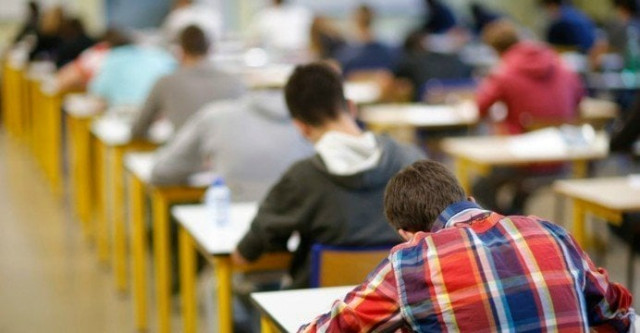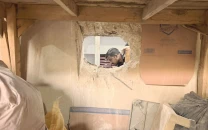Dismal results in maths and physics exams raise alarm
Majority of students barely achieved 50% marks in both subjects between 2017 and 2019, states report

The matriculation Science group results have laid bare some shocking revelations about the deteriorating standard of education particularly in maths and physics. The startling revelations were made in a recent study report of the Board of Secondary Education Karachi (BSEK). The scores achieved by students in maths and physics paint a grim picture.
From 2017 to 2019, the statistics revealed that a significant majority of the students barely achieved 50 per cent marks or less in both subjects.
In 2019 exam, more than 157,000 students from public and private schools in Karachi appeared. According to the results, more than 82 per cent of the students passed the physics paper. As per the statistical analysis, it emerged that only 12 per cent of the total students scored 80 per cent or more in physics, while 27 per cent obtained 50 per cent or less in the paper.
In the same year, more than 158,000 students appeared in the maths paper. A mere 12 per cent of the students achieved 80 percent or more marks. Out of the total 83 per cent students who passed the paper, 34 per cent gained 50 or less marks.
Former BSEK chairperson and incumbent Board of Intermediate Edication Karachi chairperson Professor Saeeduddin formulated the post-result analysis. According to his report, only 14.3 per cent matric students scored 70-80 marks in physics, while 13.99 per cent students scored between 60 to 70 marks in the exam. The report added that 13.68 per cent achieved btween 50 and 60 marks.
Read: Up to varsities to hold online or on-campus exams: HEC
In maths, 10.09 per cent students clinched 70-80 marks, while 11.75 per cent students got between 60 and 70 marks. The report said that 13.17 per cent students achieved between 50 and 60 marks.
According to the report, a similar trend was witnessed in 2017 and 2018. The comparison revealed similar statistics of students performing dismally in maths and physics papers.
Speaking to The Express Tribune, Prof Dr Saeeduddin said: “The progress of nations in the world weighs upon their level of education in physics and mathematics. Keeping the importance of these subjects in view, the BSEK held a post-result analysis to ascertain the reason for the decline and to make a strategy in this regard.”
He said the BSEK conducted another survey in the same period to get to the bottom of the matter. This survey revealed that most of the private schools located in the densely populated areas of Karachi do not employ separate teachers for maths, physics and chemistry. “In such schools, only a single a ‘science teacher’ is giving lectures on all the three subjects without possessing necessary qualification.”
The analysis stated these areas include Baldia Town, Orangi, Korangi and Landhi among others. The students of these schools are clearing papers on the basis of rote-learning rather than conceptual learning, the report stated.
The analysis also highlighted that due to the low fees of these schools mostly inexperienced and unqualified teachers are hired at cheap salaries. It deduced that the deteriorating results could be attributed to substandard teaching and untrained teachers.
“These schools need to understand that a maths teacher can teach physics, but a physics teacher cannot teach mathematics,” said Dr Saeeduddin.
Published in The Express Tribune, February 4th, 2021.



















COMMENTS
Comments are moderated and generally will be posted if they are on-topic and not abusive.
For more information, please see our Comments FAQ